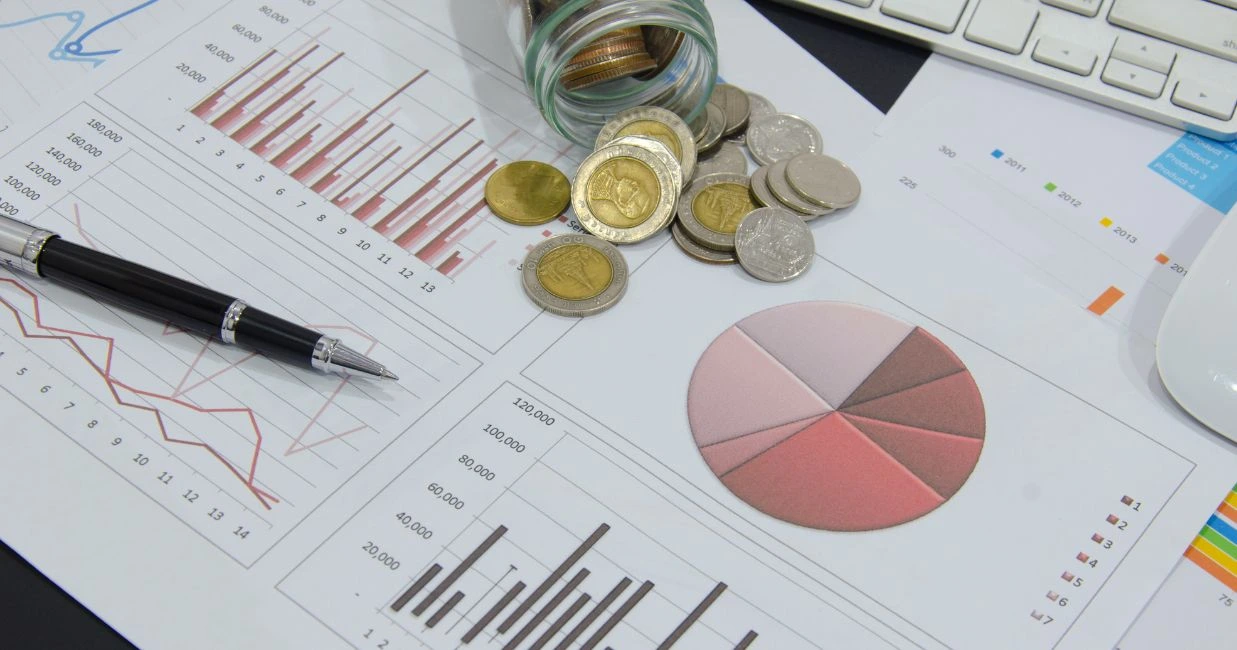
The Investor Verification Checklist That Saves Deals


The Investor Verification Checklist That Saves Deals
Investor verification is not just a legal requirement; it's your insurance against deal failure. Whether you're involved in real estate or private equity, ensuring that investors meet the necessary criteria protects both parties from financial risk and legal complications.
Without a robust verification process, you could face delays, disruptions, or even worse - deal collapse.
That’s why Capex Funds is here to offer a seamless solution. In this blog, we'll break down the critical steps in investor verification and how Capex Funds makes it easy to safeguard your next deal.

Why Investor Verification Matters in Deal Protection
Investor verification is important to the smooth execution of deals, especially when raising capital. A failed verification process can result in lost deals, legal troubles, and damaged reputations.
The key reasons why investor verification is essential include:
1. Legal Compliance:
Staying compliant with regulations such as Rule 506(b) and 506(c) under the SEC ensures that your investors meet the standards for accredited status. Non-compliance can lead to penalties and deal cancellations.
2. Fraud Prevention:
Verifying an investor’s credentials helps detect fraudulent activities. Whether it's fake documentation or misrepresented funds, proper verification ensures you only deal with legitimate investors.
3. Protecting Your Investment:
Ensuring investor suitability and accreditation reduces the risk of legal disputes and financial losses in the long run.
A real-world example: One high-profile real estate deal was derailed because the investor wasn’t properly accredited, costing the developer millions in legal fees. Avoid these pitfalls by implementing thorough investor verification processes.
Investor Verification Checklist to Save Deals
Ensuring smooth and compliant investor onboarding is vital for maintaining trust and closing deals efficiently. One of the most overlooked yet critical steps in this process is proper investor verification. A clear, comprehensive checklist not only prevents delays but also safeguards against regulatory risks that can derail promising opportunities. By following best practices and using a structured approach, you can ensure your investors are verified quickly and correctly — ultimately helping you save valuable deals.
Accreditation Status:
Verifying an investor’s accreditation status is a crucial step in ensuring compliance and protecting your deals. Without proper verification, you risk regulatory issues and potential delays in closing. At Capex Funds, we make it easy for investors to confirm their eligibility and move forward with confidence. Learn more about how to verify your Accreditation Status and streamline the investment process with our simple, reliable solutions.
Verify if the investor is accredited or non-accredited based on their income, net worth, or professional credentials. To do this:
Collect supporting documents like W-2s, tax returns, or bank statements.
se a third-party accredited investor verification service, like Capex Funds, to ensure compliance.
KYC (Know Your Customer) Compliance:
This includes verifying the investor’s identity through documents such as an ID, passport, or driver's license. Additionally, background checks are performed to confirm their legal standing and credit history.
Proof of Funds:
Review bank statements or proof of assets to ensure the investor has sufficient liquidity. It's equally important to confirm the source of funds to avoid any fraud or money laundering concerns.
Anti-Money Laundering (AML) Compliance:
Ensuring compliance with AML regulations is crucial. This involves checking that the investor’s funds are not sourced from illegal activities.
Accurate Contact Information:
Verify the investor's phone numbers, email addresses, and physical mailing addresses. Clear communication is essential for ongoing updates and building trust.
Legal Representation:
Confirm if the investor has legal representation or a financial advisor, and ensure all signed legal agreements acknowledge the terms and conditions of the investment.
Tax Identification:
Ensure a valid tax identification number (TIN or SSN) is on file. Collect and file all necessary tax documentation, such as Form W-9 or W-8BEN.
Investment Suitability:
Conduct a suitability assessment to make sure the investment aligns with the investor’s risk tolerance and financial objectives. Clear communication of risks and legal requirements is essential to avoid disputes later on.
Past Investment Verification:
If applicable, confirm the investor’s previous successful investments with third-party references. Check for any past disputes or failed investments that could raise red flags.
Investor Agreement & E-Signature Collection:
Collect digitally signed investor agreements and acknowledgments. Make sure all required legal agreements are fully executed before finalizing the deal.

Benefits of Using Capex Funds’ Investor Verification Service
Capex Funds provides a seamless, hassle-free solution for investor verification, handling every detail so you can concentrate on closing deals. However, being aware of potential risks is just as important as verification itself. Learn how to protect your business by identifying the 5 investor red flags that could sink your deal in minutes — and make smarter, more secure investment decisions.
Capex Funds offers a comprehensive, hassle-free solution for investor verification. We handle every aspect so you can focus on closing deals.
Here’s how Capex Funds simplifies the process:
- Time Savings: Our service eliminates the manual work involved in gathering and verifying investor documentation. We manage everything from accreditation status to legal compliance.
- Legal Compliance: Whether you’re dealing with 506(b) or 506(c) investors, our service ensures that every step of verification adheres to the SEC's strict requirements. We also provide accredited investor verification letters for your records.
- Peace of Mind: With Capex Funds managing your investor verification, you can be confident that all parties are legally qualified, reducing the risk of deal delays or failure.
How to Implement This Checklist in Your Next Deal
Here are actionable steps you can take to implement this checklist in your next deal, whether using an in-house team or partnering with Capex Funds:
Step 1: Start by collecting the necessary financial documents for investor accreditation. This can be handled directly or through a third-party accredited investor verification service like Capex Funds.
Step 2: Verify the identity of the investor using KYC guidelines and perform thorough background checks.
Step 3: Review proof of funds and ensure the investor meets the liquidity requirements for the deal.
Step 4: Conduct AML checks to ensure funds are legitimate and comply with legal regulations.
Step 5: Collect signed investor agreements and maintain a record of all legal documents.
When you work with Capex Funds, we simplify these steps through our automated investor verification process, allowing you to focus on growing your business.
Final Verdict - The Investor Verification Checklist
Investor verification is the cornerstone of protecting your deals. By following the checklist and avoiding common pitfalls, you reduce the risk of deal failure and ensure legal compliance.
Capex Funds offers a reliable, efficient way to handle every aspect of investor verification so you can close deals with confidence. If you’re ready to safeguard your next investment, book a free consultation with Capex Funds today and let us handle the details so you don’t have to.

FAQs
Q: What Is The Purpose Of Investor Verification?
Investor verification ensures that investors meet legal requirements, have sufficient funds, and do not pose any risks to your deal. It is important in legal compliance, fraud prevention, and ensuring the legitimacy of the investor.
Q: How Do I Verify If An Investor Is Accredited?
An investor is considered accredited based on their income, net worth, or professional qualifications. Verification typically involves reviewing financial documents such as W-2s, tax returns, or bank statements to confirm their status.
Q: What Documents Are Required For KYC Compliance?
KYC compliance usually requires identity documents such as a passport, driver’s license, or government-issued ID.
Q: Why Is Proof Of Funds Necessary In Investor Verification?
Proof of funds is essential to confirm that the investor has sufficient liquidity for the deal and to ensure that the source of funds is legitimate. This process helps prevent fraudulent activity and ensures the transaction can proceed smoothly.
Q: How Do Aml Regulations Affect Investor Verification?
AML regulations prevent money laundering by ensuring the investors' funds come from legitimate sources. Adhering to these regulations is crucial for legal protection and ensuring the integrity of your deal.
Q: What Happens If An Investor’s Contact Information Is Incorrect?
Incorrect contact information can lead to communication breakdowns, causing delays and potential issues with the deal. Verifying email addresses, phone numbers, and physical mailing addresses ensures communication remains clear and reliable.
Q: Why Is It Important To Assess Investment Suitability?
Assessing investment suitability is necessary to ensure the deal aligns with the investor’s risk tolerance and objectives. This reduces the likelihood of future disputes and ensures the investor is comfortable with the risks.
Q: How Can Past Investment Verification Protect My Deal?
Past investment verification helps confirm the credibility of an investor by reviewing their previous successful investments. This reduces the risk of engaging with unreliable investors and provides confidence in their commitment.
Q: What Are The Legal Requirements For Investor Verification?
Legal requirements for investor verification often include KYC and AML compliance, tax identification (such as TIN or SSN), and signed legal agreements. These requirements help ensure transparency and protect both parties in the transaction.
Ready to take your pitch deck to the next level?
Contact Us today to get started!Common Questions
It should include the problem, solution, market size, business model, team, and financials.
Aim for 10-15 slides to keep it concise and easy to digest.
Focus on clear messaging, strong visuals, and a compelling value proposition early on.
Highlight the problem, solution, and market opportunity in a visually simple format.
Yes, investors often decide quickly, so capturing attention quickly is crucial.
Keep it clear and simple, or consider pitch deck consulting services like Capex Funds.
Latest Posts
FAQs
01
Who does Capex Funds typically work with?
.svg)
We partner with real estate operators, syndicators, fund managers, and developers who are actively raising capital, whether it's their first fund or their fifth. If you're looking to grow your investor base and raise capital more quickly, we can help.
02
What advantages does partnering with Capex Funds offer for my capital raising efforts?
.svg)
We partner with real estate operators, syndicators, fund managers, and developers who are actively raising capital, whether it's their first fund or their fifth. If you're looking to grow your investor base and raise capital more quickly, we can help.
03
How do I get a pitch deck redesign?
.svg)
We partner with real estate operators, syndicators, fund managers, and developers who are actively raising capital, whether it's their first fund or their fifth. If you're looking to grow your investor base and raise capital more quickly, we can help.
.svg)
.svg)
.svg)
.svg)










.svg)
.svg)
.svg)
.svg)